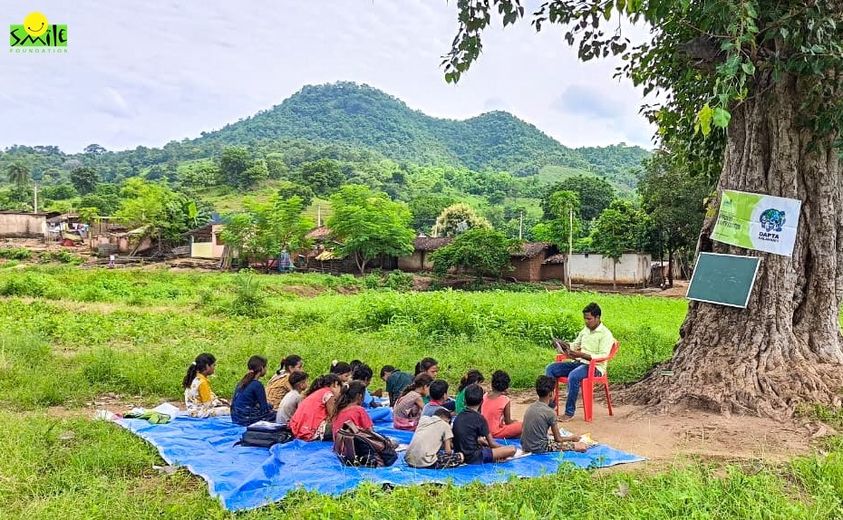The transformative power of education is not just about empowering individual children; it has the potential to reshape entire communities. This impact is evident in the story of the tribal community living on the banks of the Malti River in Sambalpur, Odisha. With parents struggling as daily wage earners, education was not a priority for this community. The journey towards change began over two decades ago with the establishment of an educational center, which faced numerous challenges and ultimately evolved into a legacy of sorts.
In the nascent stages of the centre, months were dedicated to spreading awareness and sensitising the community about the pivotal role of education. Persistent door-to-door visits and mobilisation drives bore fruit when the first batch of students was successfully enrolled. However, this initial success was only the beginning of a journey marked by substantial challenges. The community was isolated, accessible only through the river, and devoid of roads and electricity. Navigating the river during the rainy season posed dangers that the community had to confront.
Undeterred, the dedicated teachers and the team at the centre worked collaboratively with the community, initiating gradual changes to enhance the quality of life. Simultaneously, the centre fostered a child-friendly atmosphere, emphasising the holistic development of each child. Interactive and activity-based learning sessions were introduced, ensuring regular attendance and retention in school. The curriculum was enriched with co-curricular activities such as music, yoga, sports, and art, promoting the overall well-being of the children. Health camps, WASH (Water, Sanitation, and Hygiene), and nutrition awareness sessions were conducted regularly to instill health-seeking behavior in both tribal children of Sambalpur and their families.
From its modest inception, the school has grown into a fully-fledged educational institution with facilities for residential students and modern amenities. Over the years, hundreds of students have received education, with many advancing to pursue higher studies and secure government jobs. The transformation has been holistic, positively impacting not just the educational status of children but also fostering better economic stability, health, and overall well-being throughout the entire community.
This journey exemplifies the resilience of a community determined to overcome obstacles in their pursuit of education. The story goes beyond the mere provision of academic knowledge; it underscores the importance of community engagement, health initiatives, and holistic development. The center, once faced with challenges of inaccessibility, has become a symbol of progress, offering hope and opportunity to generations. The impact reverberates not only in the lives of the tribal children of Sambalpur but also in the broader social fabric, showcasing the lasting influence of education on communities.
The flagship programme of Smile Foundation- Mission Education (ME) focuses on the holistic development of children, especially those for whom quality education is not easily accessible and where education is not prioritised. We have reached 15,00,000 children and their families through all our initiatives in more than two decades and hope to bring millions more into the fold of positive change in the future.




